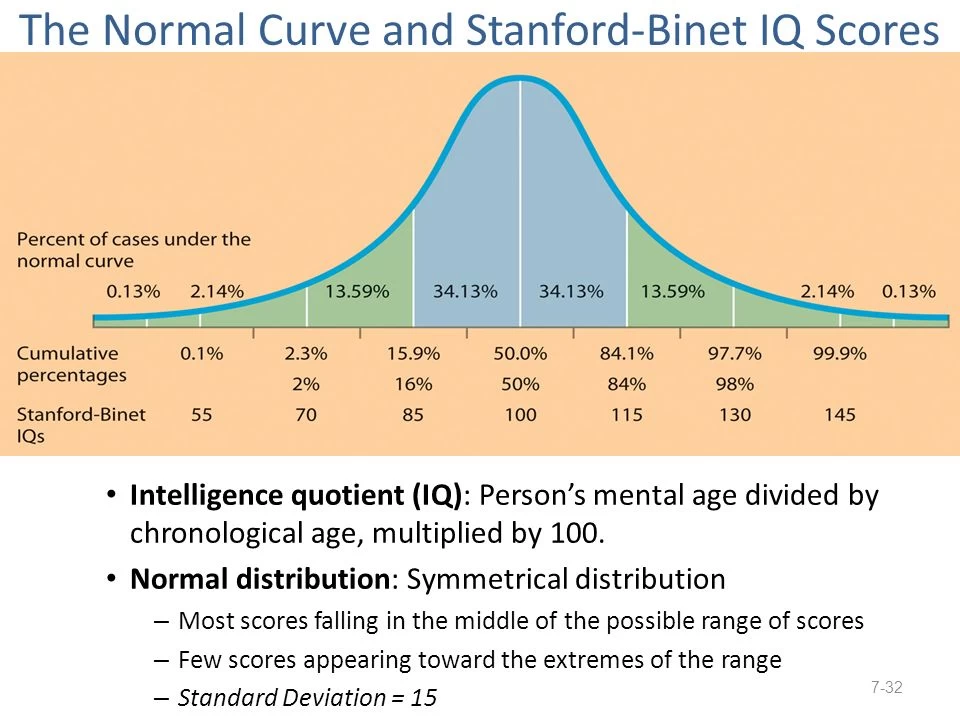The Stanford-Binet Intelligence Scale: Understanding IQ Scores
The Stanford-Binet Intelligence Scale is a standardized test used to measure cognitive abilities and intelligence. It was first developed in 1905 by Alfred Binet and Théodore Simon to identify children who were struggling in school and needed additional educational support. Lewis Terman at Stanford University later revised and standardized the test in the early 20th century, which is why it is now known as the Stanford-Binet Intelligence Scale.
The test measures several cognitive abilities, including fluid reasoning, knowledge, quantitative reasoning, visual-spatial processing, and working memory. The results are used to calculate an intelligence quotient (IQ) score, which is a measure of a person's relative intelligence compared to others in their age group.
The IQ score is calculated using a formula that takes into account a person's mental age and their chronological age. Mental age is the age at which a person performs intellectually, while chronological age is the actual age of the person. For example, a 10-year-old child who performs at the level of a typical 12-year-old would have a mental age of 12. Their IQ score would be calculated by dividing their mental age by their chronological age and multiplying by 100. In this case, the child's IQ score would be 120.
The average IQ score is 100, with scores ranging from 0 to 200. Scores between 85 and 115 are considered average, while scores above 130 are considered gifted or highly intelligent. Scores below 70 are considered to be in the range of intellectual disability.
It is important to note that while the Stanford-Binet Intelligence Scale is a widely used and respected tool for measuring cognitive abilities, it is not the only measure of intelligence, and IQ scores should not be used as the sole determinant of a person's worth or potential. There are many different factors that contribute to a person's abilities and potential, including social and emotional intelligence, creativity, and resilience.
In addition, IQ scores can be influenced by a variety of factors, including cultural background, socioeconomic status, and educational opportunities. Therefore, it is important to consider a person's individual circumstances and experiences when interpreting their IQ score.
Overall, the Stanford-Binet Intelligence Scale and IQ scores can provide valuable information about a person's cognitive abilities and potential. However, it is important to use these measures in conjunction with other assessments and to take a holistic view of a person's strengths, weaknesses, and potential for growth and development.







